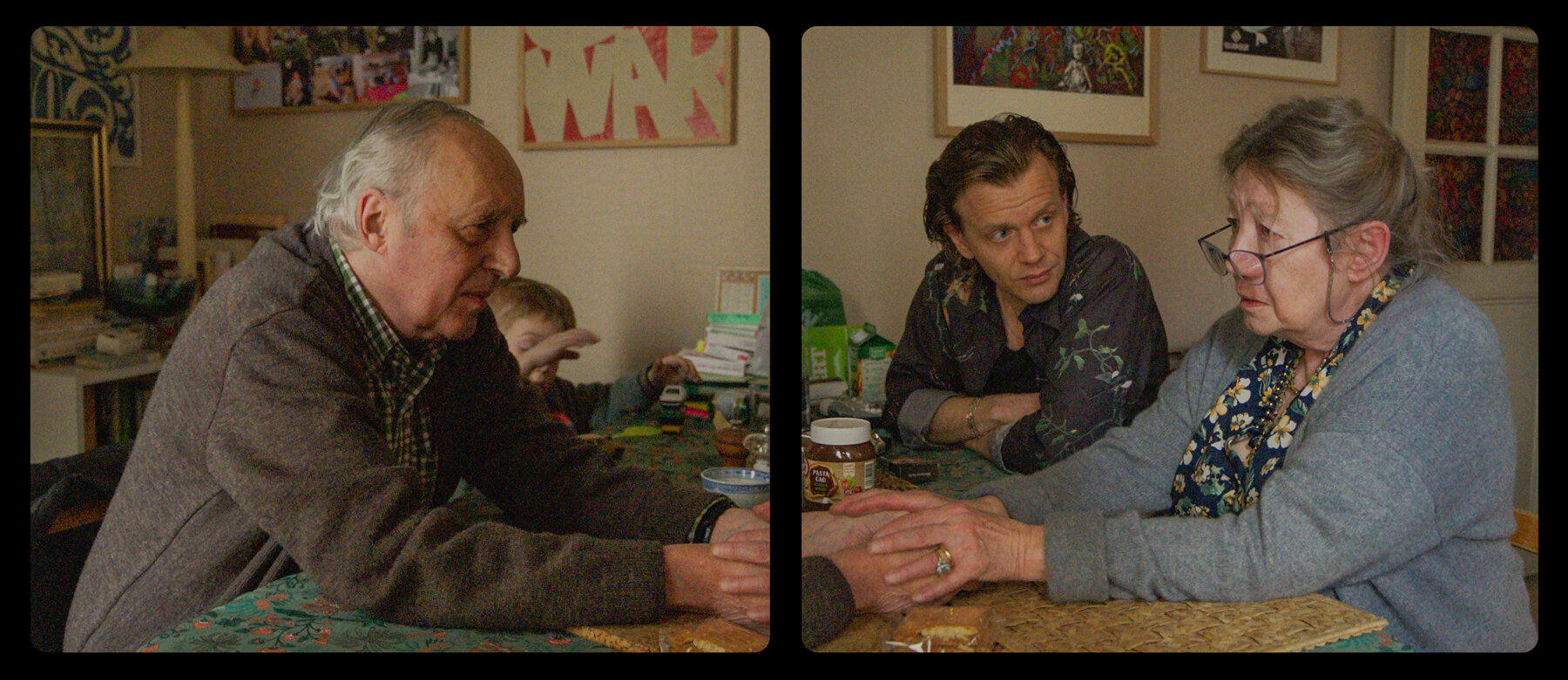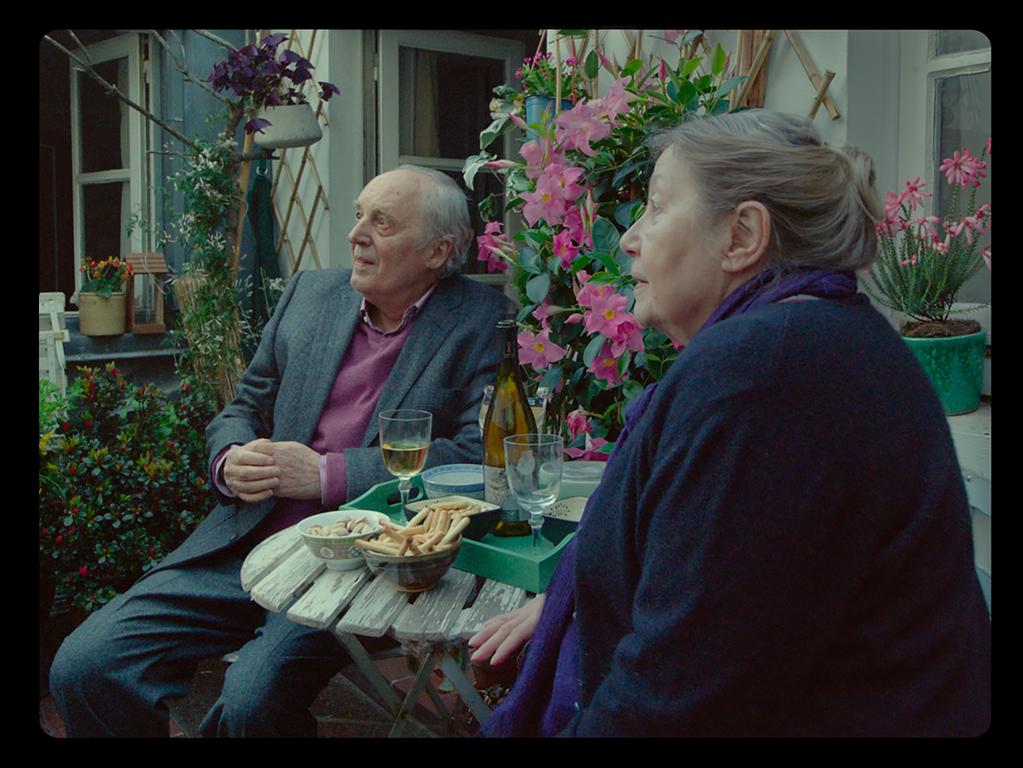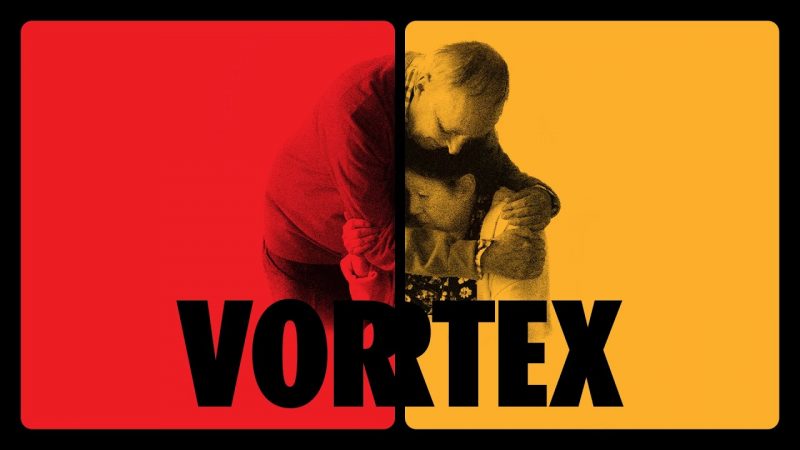“At least there have never been,
A rose as beautiful as me,
In the flowers of your garden.”
When the 41st Istanbul Film Festival program was announced, the first thing I did was buy tickets to the Gaspar Noe movie. I haven’t read the story or watched the trailer. I wondered what kind of mania he would come across this time, and I took my place in the theatre. His last movie, Lux Aeterna, was a complete eye and mind harassment. That’s why I was a bit worried. Would I leave the cinema with a headache again? But… it didn’t turn out as I expected. I came across a pretty sedate film, far from any excess, even quite emotional, and can be discussed. I wouldn’t even call it a Gaspar Noe work if I didn’t see the split-screen. Vortex is a down-to-earth movie that’s so contrary to Noe’s cinema. I have to give it credit; it’s a pretty good movie.
Let’s briefly touch on its subject… Vortex, in which we are guests at the house of an elderly couple, tells what they do in their daily lives by dividing the screen into two. While the father character in the right frame struggles to write a book about dreams in the cinema, the problems begin when we turn to the mother character in the left frame. The mother with dementia no longer remembers many things; sometimes, she even forgets where she is and panics. While the father character, played by Dario Argento, is still busy with his daily activities despite his age, his life begins to change due to his wife’s growing illness. Because the mother’s illness has reached a point where it will harm not only her but everyone.

When I watched the movie, the first thing that came to my mind was that the director had “tranquilized.” Noe has produced and directed a film that has nothing to do with his cinema. The movie is down-to-earth and far from all kinds of extremism. While I was thinking there must be a reason for this, I read that he came back from the dead. The fact that he was close to death changed his perspective on life. The man who was flying in neon lights seems like have turned off all the lights and stepped on the ground. All that’s left from his crazy side is splitting the screen in half. It should be said that he actually uses it quite correctly, and it is even useful.
Death is something we all fear. The biggest problem is that we don’t know what’s next. We think that when we die, we will grieve for what we have left behind, and we will regret not being able to make use of the remaining time. We think that after death, we will sit down and hit our knees, saying, “oh, that’s what I couldn’t do.” However, death is just darkness. There is no next. There will be no consciousness left to think about what is left behind. Death is painful only who are left behind. But this thought is challenging to accept. As long as we are alive, we worry about what we will miss if we are not. This pushes us to a paradoxical though that we can’t get out of all the time. And it’s obviously pushed Gaspar Noe too.
The movie actually has two main discourses that it wants to say. But I’m going to divide it by 3. Let’s make it 2.5. First, Vortex emphasizes explicitly how vital health is. When health goes away, the thing we call life turns into colossal anguish. You curse every moment you live. But the main thing the director is trying to say is the second thing: Memories. The worst of diseases is forgetting what you’ve been through. The worst thing that can happen is an illness that makes you start to question your very existence and forget your name. So at least for me. Because it is our memories that make us who we are. What makes us wake up again tomorrow is our experiences and the traces we leave in life. What makes life beautiful today is that when we say, “what a beautiful day it was.”

The mother’s illness, which progressed to the point of forgetting her husband and even her child, and the way she walked aimlessly and blankly throughout the film was worse than even the scariest movies. Françoise Lebrun gives a great sigh about providing that feeling. In the right frame, there is a man who is still busy with his hobbies and even has the energy to cheat on his wife, while in the left frame is a woman who is afraid and suspicious of even the step she takes. What the director is trying to tell us is pretty straightforward: Live while you’re still alive. Enjoy your life. Read, watch, love, make love. What makes you who you are is the traces you leave behind when you look back; your experiences.
But these traces exist with you and will disappear after you. You will continue to live as long as you remember or those who remember you. Otherwise, as in the movie, they will collect all your belongings and take them away one day. Tomorrow, life will move on as if you never lived there. The saddest part of the movie was precisely this moving scene. The house they spent their whole lives and stubbornly did not want to leave was emptied within 5 minutes. All memories and experiences are gone. It’s just that simple. You will become no one when you forget what you’ve been through.
Thinking that I was going to watch a ridiculous movie, I left the cinema with deep breaths. Dozens of things that I haven’t experienced yet flashed before my eyes. It’s tough to face the fact that we’re all going to die someday tomorrow. We should at least try to live a good life. Gather around you people who love you and can benefit you. Some diseases have no cure. When it comes, you have to live. Most of us have different chronic diseases. We learn to live with them. Because life goes on. Regardless, it’s beautiful.
That’s why live your life and try to stay like the one on the right of the frame no matter how old you are. Have a life to look back on and be proud of. Because you can’t choose the one in the left frame. But the one on the right is entirely your choice. Gaspar Noe also said bluntly, I choose the right side.

Cast & Crew
director: Gaspar Noé
writers: Gaspar Noé
starring: Dario Argento, Françoise Lebrun
FRANCE | 2022 | 142 MINUTES |
